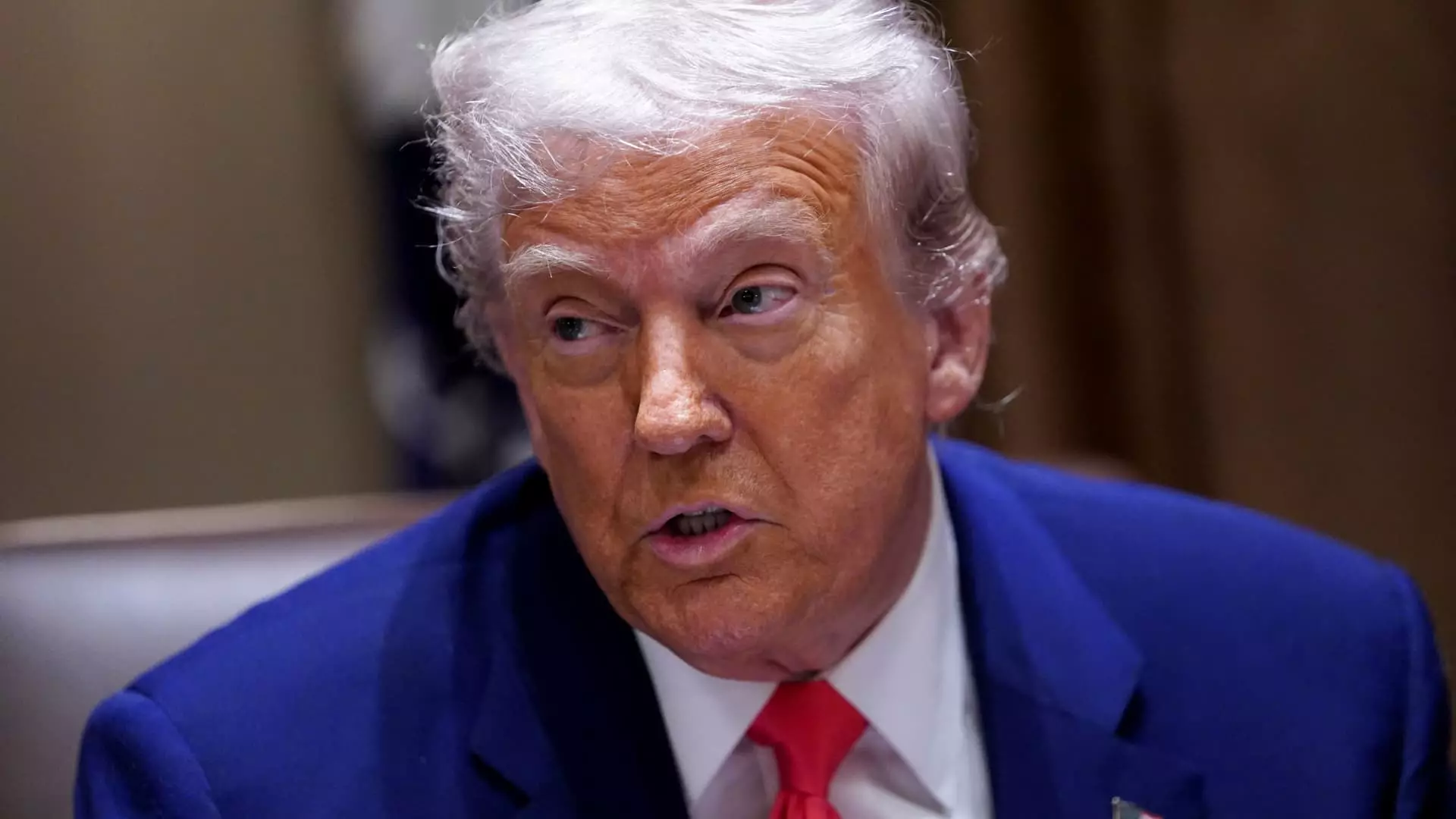In recent political maneuvers, President Donald Trump’s administration proposed an eye-popping 145% tariff on an array of products imported from China. The rationale was simple: to assert control in trade negotiations and bolster the U.S. economy through protectionism. Yet just days later, the U.S. Customs and Border Protection Agency provided new guidance stating that essential tech devices—smartphones, computers, semiconductors—would be exempt from these harsh tariffs. While this seems like a concession aimed at appeasing tech giants, it is a prime example of short-sighted policymaking that can have long-term ramifications.
The absence of tariffs on these critical tech components is indeed a boon for companies like Apple, who rely heavily on Chinese manufacturing. This reality raises an important question: are tariffs truly effective in fostering American manufacturing, or do they serve mainly to protect a frail financial ecosystem reliant on the current global supply chain? One can argue that by exempting essential technologies, the administration is essentially acknowledging an unfortunate dependence on China while failing to support a robust alternative domestically.
An Ominous Outlook for Market Stability
The immediate aftershocks of Trump’s tariff declarations rocked Wall Street, sending tech stocks spiraling and erasing $640 billion from Apple’s market capitalization. Such volatility hints at the precariousness of an economy built on the back of tech innovation and global trade. Investors were thrown into a panic, spurring substantial sell-offs that culminated in a sharp decline of the S&P 500 by more than 5%. This whirlwind of uncertainty reflects how intertwined our economy has become with international markets, further suggesting that heavy-handed tariffs might prove to be a false panacea for what ails American industry.
The White House’s actions, including a recently announced 90-day tariff reprieve for most allied countries, demonstrate an understanding of the precarious balance between competition and cooperation in global economics. However, the exclusion of China from this alliance sends a confusing message; are we truly in this together, or is it a one-sided struggle? It appears that despite the allure of isolationism, the reality of economic interdependence is too daunting to gloss over.
Trade Policies: A Test for American Tech
The exemptions granted to tech products highlight the complexities surrounding trade policies. For all intents and purposes, they might appear to be a victory for the tech sector, but should we be relieved or concerned? It is a precarious game of chess where companies tread carefully, knowing that while today may yield a temporary win, tomorrow’s landscape remains fraught with potential losses.
Furthermore, the new shipping guidelines state that exclusions would only apply to products leaving warehouses as of April 5, 2025. This stipulation prolongs uncertainty and tempts businesses to re-evaluate their supply chains. Will companies invest heavily in U.S. manufacturing in anticipation of an impending trade war? Or will they continue to rely on the efficiencies of overseas production, risking long-term viability to chase short-term gains?
Ultimately, the tech sector stands at a crossroads, and the path chosen will have resounding consequences. A serious overhaul in trade policy is required to not just support big tech but also stimulate broader economic equality, innovation, and competitiveness across the board.
The Bigger Picture: Redefining Innovation and Economy
These tariffs and subsequent exemptions symbolize a broader ideological battle that defines contemporary liberalism. Instead of viewing trade as a war to be won, we should perceive it as an opportunity to engage globally; an opportunity to elevate American ingenuity and foster partnerships rather than stifle them under burdensome tariffs. Heavy tariffs may give an illusion of protection for American jobs, but the underlying truth is that they stifle creativity and innovation—the very forces that have historically positioned the U.S. as a global leader.
While the current exemptions may look favorable for tech companies, the real challenge lies ahead. As policymakers continue to wade through the murky waters of global trade relationships, they need to adopt a more nuanced understanding that prioritizes collaboration over confrontation. Only then can we truly unleash the potential of American technology and craftsmanship, securing not just temporary relief, but a sustainable future for our economy.


Leave a Reply